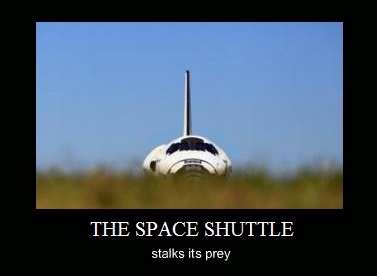Today's humor tidbit comes to us from the GCFL net, or the Good Clean Funnies List. Always love a good space joke! The ones that are true are often the ones that are most groaningly humorous, and it's a good site to comb over for clean, amusing fun -- space-related or otherwise.

They occasionally poke fun at the politics of NASA culture, the reason we haven't yet reached Mars, and perpetuate absurd but well-loved urban legends about moonwalkers.
Though their contributors do occasionally dip down into what could easily called political incorrectness... sometimes they can be a little TOO politically correct.
Just out of curiosity, I tried to find out which historical dictionary contained this alleged "imaginary" definition. I couldn't come up with an original source, but was amused by many of the descriptions in well-known modern sources:
Dictionary.com
Noun: Spacecraft. Origin: 1940–45; space + ship.
Oxford English Dictionary
A spacecraft, especially one controlled by a crew.
Cambridge Dictionary
(Especially in stories) a vehicle used for travel in space.
Wordnik
1. A vehicle that flies through space.
2. (cellular automata) A finite pattern that reappears after a certain number of generations in the same orientation but in a different position.
3. A spacecraft designed to carry a crew into interstellar space (especially in science fiction).
Encarta
A vehicle designed to transport people or materials through outer space.


































































